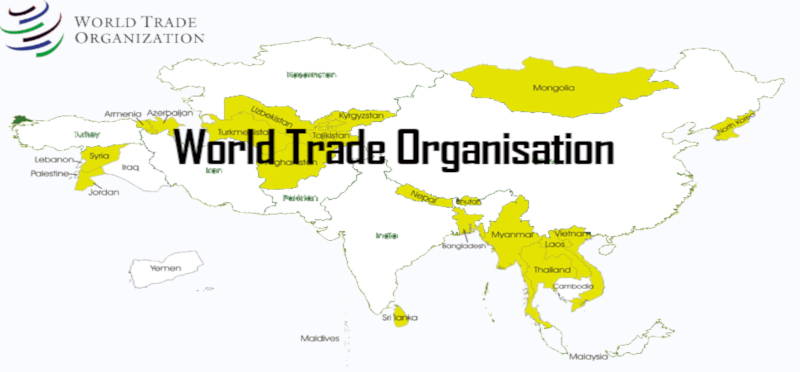
Big developing countries like India, China, and Brazil are opposing the developed countries demand for ending special and differential treatment to developing countries at World Trade Organisation (WTO).
What are The Issue :-
- Citing the selective economic and trade data, the developed countries are trying to put an end to the special and differential treatment provided to the developing countries.
- It is a fact that big developing countries have rapidly progressed economically but still not at par with the developed countries.
- The developing countries, by submitting a paper to the WTO General Council countered the moves of developed nations.
- In the paper, they stated that the per capita economic outcomes and clear poverty levels are an indication for the continuation of special and differential treatment.
- They further showed that the gap in per capita GDP of Brazil, India, China and Indonesia with that of US and UK increased by 71% and 63% between 1994-96 and 2014-16.
- Also, the developing countries need special provisions as there are many on-going negotiations on subsidies. For example, developing countries can protect their poor fishermen by negotiating for proper fisheries subsidy.
- The developing countries submission to WTO also stated the difference in capabilities of developed and developing countries, especially in agriculture.
- In developing countries, the farm holdings are small and the majority are dependent on it for livelihood.
- The demand by the developed countries amounts to them curtailing the development of the developing nations.
Also Read: Damage To the Environment is the Reason behind Quarter of Global Premature Deaths: GEO
Facts and Figures :-
- GDP per capita of US, Canada, Australia, New Zealand and the EU as of 2017 was $59,531, $45,032, $53,800, $42,941, and $33,715.
- For many developing countries, these numbers were below $10000.
- As per UN Food and Agriculture Organisation (FAO), the world’s undernourished people are in countries like India, China, Pakistan, Bangladesh, Ethiopia, Nigeria, Indonesia, Tanzania, Uganda, Philippines, and Brazil.
Special and Differential Treatment :-
- These are special provisions provided to developing countries under WTO agreements. These include:
- Developing countries are allowed to take a longer time for implementing commitments and agreements of the WTO
- Special measures to improve trading opportunities for developing countries
- WTO Member countries are required to safeguard the trade interests of developing countries
- Provide support to developing countries to handle trade disputes, and implementing technical standards
- In the Doha Declaration, it was agreed by all the member countries that special and differential treatment provisions are integral to WTO agreements and review them to strengthen them.
- In Bali Ministerial 2013, a mechanism was established to review and analyze these special provisions.
- The Committee on Trade and Development (CTD) of the WTO is mandated to look into the matter.
Also Read: A Climate Vulnerability Index for The Indian States on the Anvil
Way Ahead :-
- Since the beginning of the trade negations in the Uruguay round, the developed countries have tried to undermine the development aspirations of the developing countries.
- They tried to safeguard their trade interests but have been effectively thwarted by the developing nations.
- For India, it is still a long way to reconsider the special and differential provisions.
- The country has the largest under-nourished population in the world and it’s per capita is much lower than the developed countries.
- Its developmental needs call for retaining the special provisions of WTO agreements

Leave a Reply
You must be logged in to post a comment.